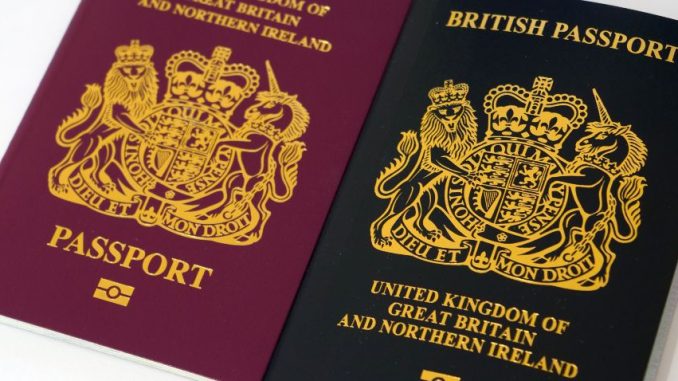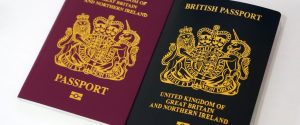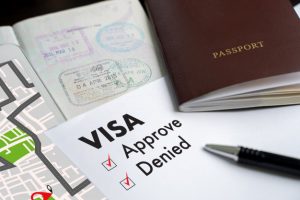
Obtaining an Ireland Work Visa opens the door to exciting professional opportunities in a country renowned for its vibrant economy and welcoming environment. The Ireland Work Visa, also known as the Irish Employment Permit, enables skilled individuals from outside the European Economic Area (EEA) and Switzerland to legally work and reside in Ireland.
With various visa types tailored to different employment scenarios, such as Critical Skills Employment Permits and General Employment Permits, the Irish Work Visa offers a pathway for talented individuals to contribute their expertise to the Irish workforce. In this article, we explore the intricacies of the Ireland Work Visa and guide you through the application process.
Overview

The Ireland Work Visa, also known as the Irish Employment Permit, is a document issued by the Irish government that allows foreign individuals to legally work and reside in Ireland for a specified period. This visa is designed to attract skilled professionals, entrepreneurs, and employees from outside the European Economic Area (EEA) and Switzerland who wish to work in Ireland.
Obtaining an Ireland Work Visa typically requires a job offer from an Irish employer, as the visa is tied to specific employment. Different types of employment permits exist based on the nature of the job, such as Critical Skills Employment Permits, General Employment Permits, and Intra-Company Transfer Permits.
The Ireland Work Visa aims to ensure that the Irish labor market remains competitive, while also encouraging diversity and skill acquisition. It provides opportunities for international workers to contribute their expertise to the Irish workforce and gain valuable professional experience in a vibrant and dynamic country.
Type of Ireland Work Visa
- Critical Skills Employment Permit: This permit is designed for individuals with skills that are in high demand in Ireland. It is aimed at attracting professionals in fields such as science, technology, engineering, and mathematics (STEM), as well as healthcare and other sectors facing skill shortages.
- General Employment Permit: The General Employment Permit is for occupations that are not covered under the Critical Skills category. It allows non-EEA workers to take up employment in a wide range of occupations, subject to certain criteria.
- Intra-Company Transfer Permit: This permit is available to employees of multinational companies who are being transferred to an Irish branch or subsidiary. It enables these individuals to work in Ireland for a designated period.
- Dependant/Partner/Spouse Employment Permit: If you are the dependent spouse, partner, or legal dependent of a person holding an employment permit in Ireland, you may be eligible to apply for this permit and work in the country.
- Internship Employment Permit: This permit allows non-EEA students who are pursuing a full-time course of study in Ireland to undertake a paid internship or work placement related to their field of study.
- Reactivation Employment Permit: The Reactivation Employment Permit is aimed at individuals who previously held an employment permit in Ireland and have been made redundant. It allows them to seek new employment opportunities in the country.
READ ALSO: Germany Work Visa: A Gateway to Thriving Career Opportunities in Europe
Eligibility Criteria for Ireland Work Visa
- Job Offer: In most cases, you must have a job offer from an Irish employer before applying for an Ireland Work Visa. The job offer should be for a position that cannot be filled by an Irish or EEA national.
- Skills and Qualifications: The specific skills and qualifications required may vary depending on the type of work permit you are applying for. For Critical Skills Employment Permits, you should possess qualifications and experience in a high-demand field, such as STEM or healthcare. General Employment Permits have specific requirements for different occupations.
- Labor Market Needs: The Irish government ensures that the employment of non-EEA workers does not adversely affect the Irish labor market. Therefore, the job offer must be in a sector that has a genuine need for foreign workers.
- Salary Threshold: There are minimum salary requirements for most employment permits. The salary offered to you must meet or exceed the threshold specified by the Department of Enterprise, Trade and Employment.
- Validity of Job Offer: The job offer should be for a position that is likely to exist for at least two years, or in the case of Intra-Company Transfer Permits, for the duration specified by the company.
- English Language Proficiency: In most cases, you need to demonstrate a certain level of proficiency in the English language. This can be done by providing evidence of English language qualifications or by completing an English language test.
- Proof of Funds: You may be required to show that you have sufficient funds to support yourself and any dependents during your stay in Ireland.
Requirements for Ireland Work Visa
- Completed Application Form: You need to fill out the appropriate application form for the specific type of Ireland Work Visa you are applying for. The application form can be obtained from the Irish Naturalisation and Immigration Service (INIS) website or the nearest Irish embassy or consulate.
- Valid Passport: You must have a valid passport that will remain valid for the duration of your intended stay in Ireland. Your passport should have at least six months of validity remaining from the date of your intended arrival.
- Passport-sized Photographs: You will typically need to submit recent passport-sized photographs that meet the specifications outlined by the INIS.
- Job Offer Letter: You need a formal job offer letter from an Irish employer, specifying the position, salary, and duration of employment. The letter should also mention that the job cannot be filled by an Irish or EEA national.
- Employment Permit: Depending on the type of Ireland Work Visa, you may need to obtain an Employment Permit issued by the Department of Enterprise, Trade and Employment. The specific permit required will vary based on the nature of the job and your qualifications.
- Qualifications and Certificates: You may be required to provide evidence of your qualifications, such as degrees, diplomas, or certificates, depending on the type of work you will be undertaking in Ireland.
- English Language Proficiency: As mentioned earlier, you may need to demonstrate your proficiency in the English language through recognized language tests or by providing proof of prior education conducted in English.
- Financial Documentation: You may be required to provide evidence of sufficient funds to support yourself and any dependents during your stay in Ireland. This can include bank statements, sponsorship letters, or any other financial documents as specified by the immigration authorities.
- Medical Insurance: Some work visa categories may require you to have private medical insurance coverage for the duration of your stay in Ireland. Check the specific requirements based on your visa type.
- Police Clearance Certificate: In certain cases, you may need to provide a police clearance certificate from your home country or any other country where you have resided for a significant period in the past.
How to Apply for Ireland Work Visa

To apply for an Ireland Work Visa, you generally need to follow these steps:
- Determine the Visa Type: Identify the specific type of Ireland Work Visa that is appropriate for your employment situation. Consider factors such as your qualifications, job offer, and eligibility criteria to determine the most suitable visa category.
- Gather Required Documents: Collect all the necessary documents as outlined in the application requirements. This typically includes your passport, completed application form, passport-sized photographs, job offer letter, employment permit (if applicable), qualifications and certificates, English language proficiency proof, financial documentation, and any other supporting documents specified for your visa type.
- Check Processing Times and Eligibility: Review the processing times for your visa type on the INIS website or through the Irish embassy or consulate. Ensure that you meet the eligibility criteria, including qualifications, salary requirements, and any other specific requirements for your chosen visa category.
- Submit Application: Complete the application form accurately and legibly. Attach all the required documents, ensuring that they are properly organized and in the specified format. Make copies of all the documents for your records.
- Pay Application Fees: Pay the required application fees, which can vary depending on the visa type and your circumstances. The fees can typically be paid online or through a designated payment method as instructed by the immigration authorities.
- Schedule Biometrics Appointment (if applicable): Some visa types may require you to provide biometric data, such as fingerprints and photographs. If necessary, schedule an appointment at a designated visa application center to provide your biometrics.
- Attend Visa Interview (if required): Certain visa types may require an interview as part of the application process. If an interview is necessary, prepare yourself by reviewing the details of your job offer, qualifications, and other relevant information.
- Await Decision: After submitting your application, you will need to wait for a decision on your Ireland Work Visa. Processing times can vary, so it’s important to be patient. You can track the progress of your application on the INIS website.
- Collect Visa and Make Travel Arrangements: Once your visa is approved, collect your visa sticker or document from the designated visa application center or consulate. Make necessary travel arrangements, including booking flights and accommodation, and plan for your arrival in Ireland.
Conclusion
Securing an Ireland Work Visa can be a life-changing experience, providing access to rewarding employment opportunities in a thriving and diverse economy. Whether you are a skilled professional, an entrepreneur, or a transfer employee, the Ireland Work Visa offers a gateway to pursue your career aspirations in this enchanting country.
By meeting the eligibility criteria, gathering the necessary documents, and following the application process diligently, you can set yourself on the path to obtaining the coveted Ireland Work Visa. Embrace the opportunity to immerse yourself in Ireland’s rich culture, friendly communities, and dynamic work environment. Start your journey towards an Ireland Work Visa and unlock a world of possibilities.
Leave a Reply